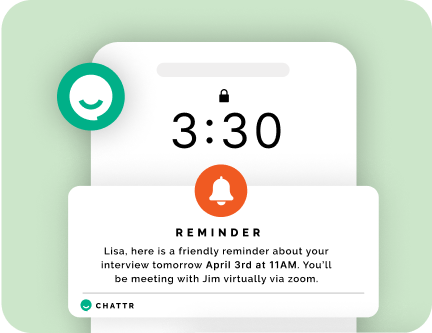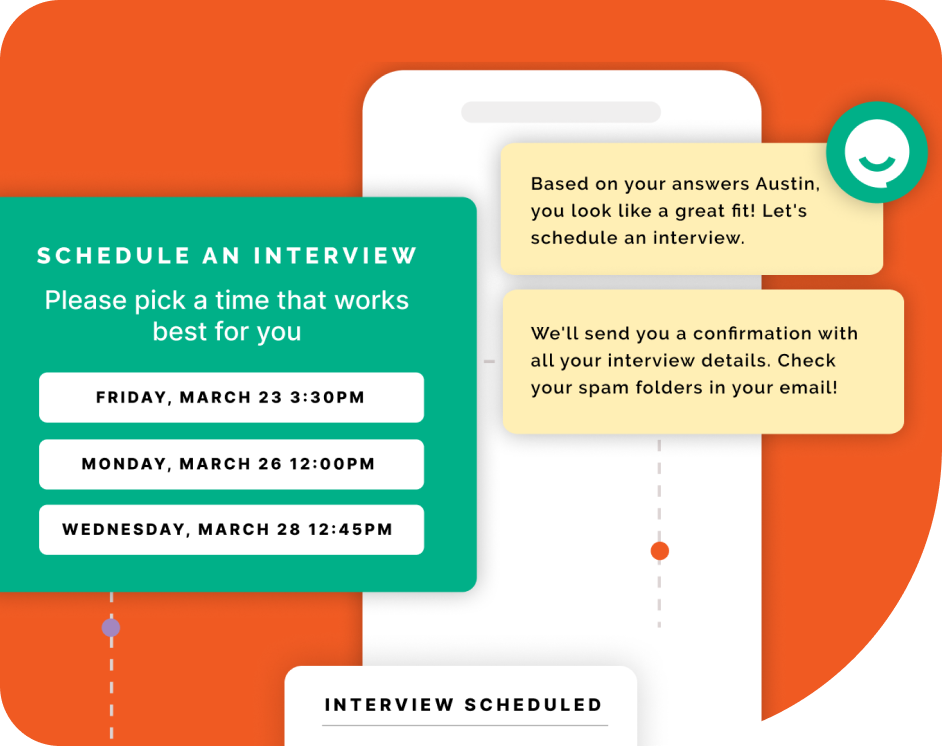Hourly businesses often rely heavily on talented, motivated high schoolers seeking income, growth opportunities, and valuable work experience. Foster these win-win relationships through school partnerships, flexible scheduling, internships, leadership development, reassuring parents, and more.
Partner With Local Schools
Build strategic partnerships with area high schools, especially those with vocational programs aligned with your open positions. Meet with guidance counselors and career service coordinators to share information on roles, culture, and preferences for motivated student candidates.
Present to classes relevant to your industry about opportunities, training programs, and long-term career growth possibilities, not just entry-level jobs. Host interactive recruiting sessions and facility tours on campus or virtually so students can engage directly with your workplace.
Develop close relationships with influential career services staff guiding students. Provide job descriptions, hiring tips, and company literature for school career centers. Ask to enroll for access to post openings on their exclusive online portals and newsletters specifically reaching graduating classes.
Promote Roles on Campus
Promote open positions through high school channels like career center boards, school papers and newsletters, social media groups, and job fairs specifically for students. Partner with guidance counselors to share role types optimal for rising high school seniors seeking early workforce exposure.
Have a student-focused booth presence at annual school job fairs tailored to conversing with young candidates new to job seeking. Tailor talking points around training, vision, advancement, areas of interest, and culture – not just compensation or duties. Meet students where they are in their early development journey.
Leverage broader school communications channels like media programs, radio stations, flyers in common spaces, athletics programs, drama clubs, and more to broadly share opportunities matched to compatible interests. According to recruiters, creatively sharing your brand on campus expands qualified candidate pipelines.
Offer Flexible Scheduling
Structure high schooler shifts predominantly evenings, weekends, and summers, balancing academics, extracurriculars, exams, and social lives critical for whole-student development. Show willingness to flex schedules around busy exam periods, large assignments due, test preparations, and heavy study demands.
Provide consistent, predictable part-time schedules once set, allowing students to plan other activities accordingly around predetermined work blocks. Avoid last-minute schedule shakeups without proper notice. Have student groups provide input into shift start times and rotations, facilitating work-life balance amidst many obligations.
Demonstrate empathy regarding school priorities coming first when occasional schedule conflicts arise. Build in buffers allowing a number of student call-ins or shift swaps when facing academic crunch times. According to workplace experts, hourly schedule flexibility and understanding support teenage worker retention and loyalty.
Enable Students to Grow Professionally
Offer short-term project internships, allowing students to build skills and explore roles with your organization. Provide hands-on initiatives tailored to high schoolers’ interests where they gain exposure to internal functions while showcasing their own abilities through initial pilot projects.
Structure programs provide resume-building opportunities that also benefit your teams through additional help on existing projects. Alternatively, offer flexible community service hours for school credit, volunteering over their summer break, or preparing for your busiest seasons.
Paid internships supervised by managers invested in their learning provide insight into work environments before committing to employment during academic years. Some may continue working part-time after positive intern experiences. Leadership coaching cements brand affinity, converting interns into promotors.
According to recruiters, cultivating local high school talent pipelines requires demonstrating a genuine commitment to student welfare beyond just filling hourly shifts. Customized roles enabling mutual benefits drive optimal engagement.
Support Leadership Growth
Invest in promising interns and new hires, supporting their leadership development and cultivating future talent. Allow top-performing students to train or mentor incoming roles once they acclimate, building their capabilities while reinforcing culture from young peer representatives.
Task standout scholars to spearhead or support implementations of new technologies. Have teens manage special projects over summer months when more hours become available, leveraging their emerging skill sets. Projects could include producing training content, developing community initiatives, supporting analytics, and generating social media content highlighting your brand and opportunities.
While many student workers pursue long-term education or careers elsewhere, some discover passions for hospitality, retail, healthcare services, landscaping, construction, and manufacturing and decide to develop specialty expertise through your coaching. Nurture high-potential early talent carefully through reviews of their goals, balancing near-term income needs with longer-term interests.
Reassure Parents
Proactively communicate key workplace policies, training programs, safety measures, codes of conduct, and culture tenets to students and indirectly to guardians supporting their employment pursuits. Share specifics around safety protocols, emergency procedures, prohibited practices, dress codes, and rules important for parents to authorize their involvement.
Host information sessions addressing frequently asked questions around payroll structures, flexible scheduling, expectations, and student support resources. Have printed takeaways covering FAQs to reference later.
Highlight development opportunities teaching customer service, responsibility, character, time management, and other soft skills critical for overall maturation – not just technical training for the role itself. Discuss graduation benefits like bonuses, gift cards, and written recommendations rewarding their commitment.
Provide comfort to parents through facets like having central points of contact for transparently addressing additional concerns, requiring guardian approvals before extending offers, and proactive policies ensuring safe and ethical workplaces for young adults. According to experts, reassuring parents facilitates securing permission for eager workers.
Developing early talent pipelines requires mutual understanding, balancing student priorities amidst work obligations, and contributing to their income and growth. Schools and parents ultimately act as partners in high schoolers’ success.
Conclusion
Chattr provides an integrated recruitment platform with purpose-built capabilities that boost high school hiring efficiency through automation while delivering personalized and developmental candidate experiences.












